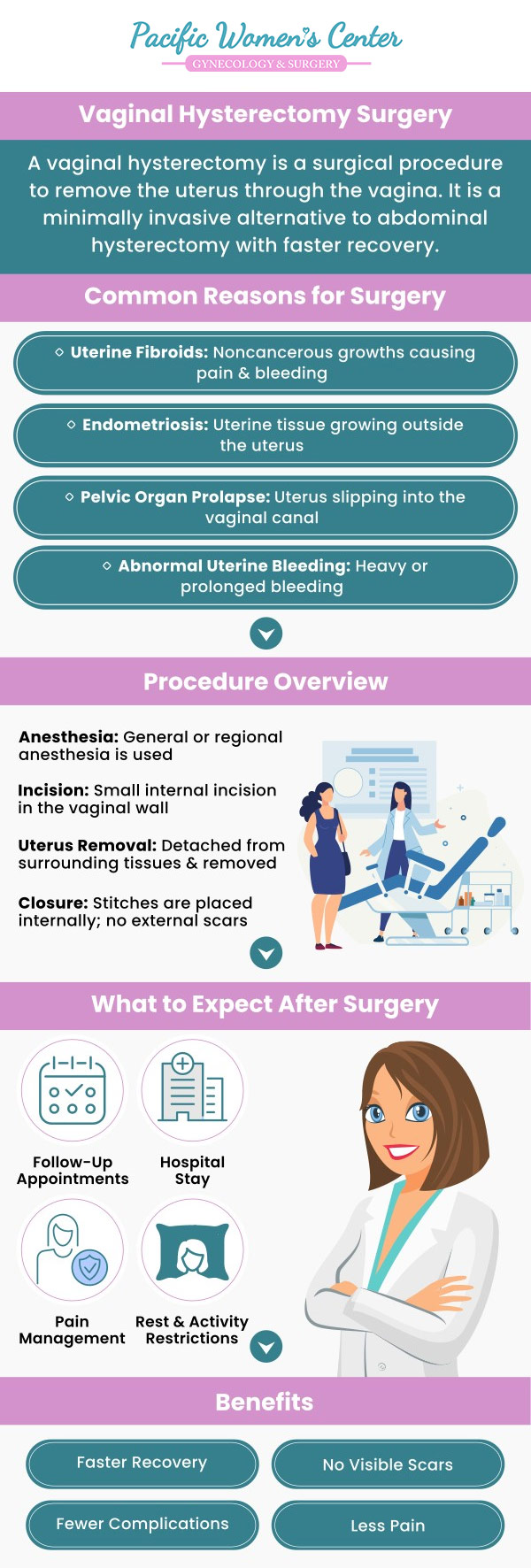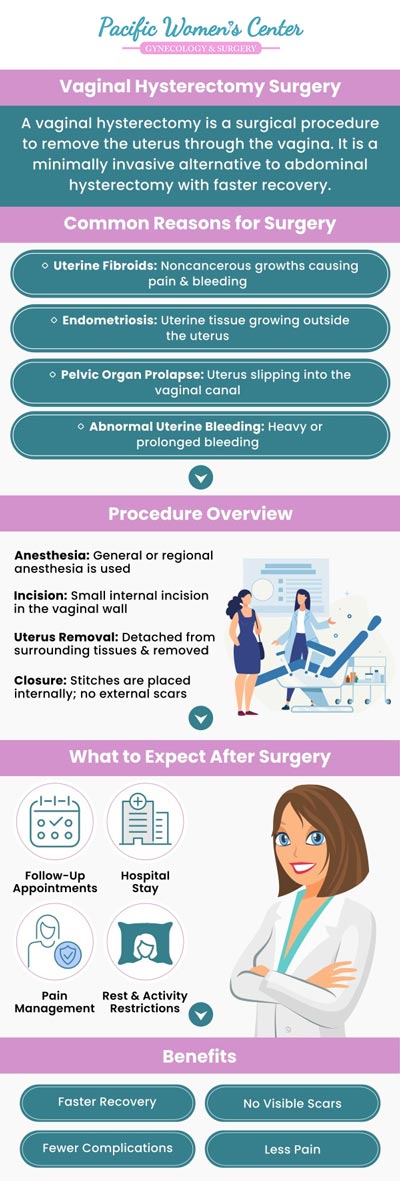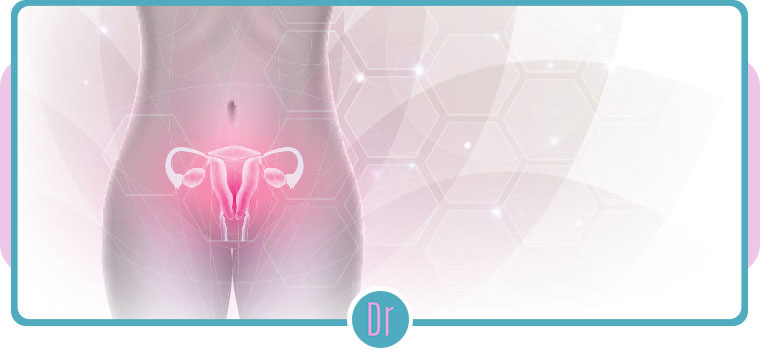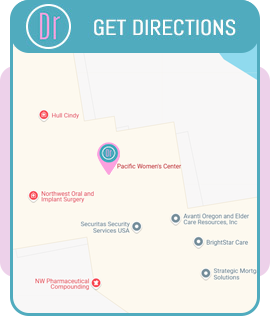Hysterectomy Surgery Specialist in Eugene OR
Do you suffer from cervical cancer, uterine prolapse, or heavy menstrual bleeding? A hysterectomy involves the removal of the uterus, as well as possibly the ovaries, fallopian tubes, and cervix. Hysterectomy can be done using a variety of surgical techniques, including vaginal, laparoscopic, robotic-assisted laparoscopic, and abdominal hysterectomy. Dr. Richard Beyerlein MD, CPI, FACOG, and Tamara A. Stenshoel, MD, FACOG provide the most recent minimally invasive hysterectomy treatments employing a variety of approaches. This method is life-saving and helps in removing the uterus’s potential risk factors. For more information, contact us or schedule an appointment online. We are conveniently located at 911 Country Club Rd. Suite 222, Eugene, OR 97401.




Table of Contents:
What happens to your body when you have a hysterectomy?
Is hysterectomy major surgery?
What is the most common reason to receive a hysterectomy?
How long does recovery take after a hysterectomy?
What are 3 reasons a hysterectomy is performed?
After a hysterectomy, it’s common to experience pelvic pain and discomfort. You may also experience temporary hormonal changes, such as hot flashes and mood swings, as your body adjusts to the loss of the uterus.
However, there are also positive changes that come with a hysterectomy. For example, if you had heavy or painful periods before surgery, you’ll find that those symptoms are greatly reduced or eliminated. If you had fibroids or other growths in your uterus, those will be removed as well.
Yes, a hysterectomy is a major surgery. The procedure involves the removal of the uterus, which is a significant organ in the female reproductive system. A hysterectomy can be performed using different techniques, including open surgery or minimally invasive methods such as laparoscopic surgery.
During a hysterectomy, the surgeon will make incisions in the abdomen or vagina to access the uterus and remove it. This can take several hours, and patients typically require a hospital stay for a few days to recover. Recovery time will vary depending on the type of hysterectomy and the patient’s overall health and individual circumstances.
While a hysterectomy is a major medical procedure, it is generally safe and highly effective at treating a range of uterine problems. If you’re considering a hysterectomy, talk to a specialist to determine if it’s the right option for your particular situation.
Uterine fibroids are the most common reason to receive a hysterectomy. They are non-cancerous growths that develop in the uterus and can cause heavy bleeding, pain, and other uncomfortable symptoms. If other treatments, such as medication or non-invasive procedures, have not succeeded in managing fibroids, a hysterectomy may be recommended.
Another common reason to undergo a hysterectomy is endometriosis. This is a condition where the lining of the uterus grows outside of it and causes pain and other symptoms. Hysterectomies are also recommended for certain types of cancer affecting the uterus or ovaries. Furthermore, the procedure is used to treat chronic pelvic pain and prolapse of the uterus.
It’s important to note that a hysterectomy is a major surgery and should only be considered after other treatments have been tried and evaluated. If you’re experiencing symptoms related to the uterus or reproductive system, consult a medical professional to discuss the best treatment options for your condition.
The recovery time frame for a hysterectomy varies depending on the type of procedure performed and the patient’s health and circumstances. On average, it takes several weeks to several months to fully recover from a hysterectomy. After surgery, patients will typically spend a few days in the hospital to be monitored and receive pain management medication. Afterward, they will be sent home to continue their recovery.
During the recovery period, patients should avoid heavy lifting and strenuous physical activity. They may need to take time off work or other activities to rest. Pain and discomfort in the pelvic area are common during the first few weeks after surgery, but can usually be managed with medication. Patients will also need to avoid sexual activity for several weeks after the surgery to allow the body to heal. Follow-up appointments with the doctor will be necessary to monitor healing and ensure there are no complications.
Three common reasons for hysterectomy are:
Treatment-resistant conditions: In some cases, conditions such as uterine fibroids and endometriosis do not respond to first-line treatments such as medication or non-invasive procedures. If a patient has exhausted all other options and still experiences significant symptoms, a hysterectomy is often recommended.
Pelvic inflammatory disease: This is an infection of the female reproductive system that causes pelvic pain, fever, and other symptoms. If the infection is severe or recurring, a hysterectomy may be recommended to prevent further damage and complications.
Prolapse: Prolapse is a condition where the uterus or other pelvic organs descend into the vagina, causing symptoms such as discomfort and urinary incontinence. If other treatments have not been successful, a hysterectomy is often recommended.
Hysterectomy surgery can efficiently cure uterine fibroids, endometriosis, and some gynecological cancers. For more information, contact us or schedule an appointment online. We are conveniently located at 911 Country Club Rd. Suite 222, Eugene, OR 97401. We serve patients from Eugene OR, Coburg OR, Creswell OR, Cottage Grove OR, Junction City OR, Lowell OR, Springfield OR,, and surrounding areas.

ADDITIONAL SERVICES YOU MAY NEED
❱ Abdominal Hysterectomy
❱ Bladder Lift Surgeon Q&A
❱ Cervical Cone Biopsy
❱ Colposcopy
❱ Endometrial Ablation
❱ Endometrial Biopsy
❱ Female Sexual Dysfunction
❱ Gynecological Surgery
❱ Gynecology
❱ Hormone Therapy
❱ Vaginal Hysterectomy
❱ Endometriosis Diagnosis & Care



